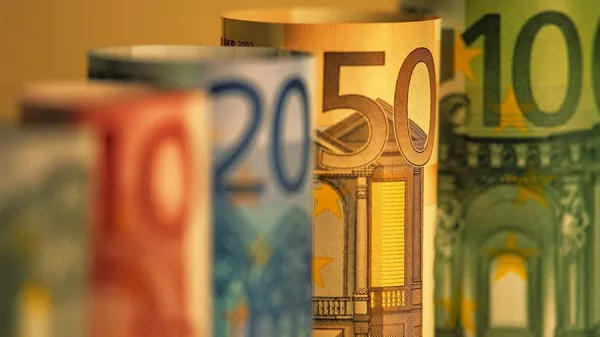In the realm of international finance, predicting the future movements of currencies is a challenging yet essential task. Investors, businesses, and policymakers closely follow currency predictions to make informed decisions and mitigate risks. One such currency that commands significant attention is the Euro (EUR), the official currency of the Eurozone. In this article, we will delve into the concept of Euro predictions, exploring the factors that influence them and the implications for various stakeholders.
The Euro and Its Importance
The Euro, abbreviated as EUR, was introduced on January 1, 1999, as an electronic currency for banking and electronic transactions. Euro banknotes and coins entered circulation in 2002, replacing the former national currencies of 19 of the 27 European Union (EU) member states. The Eurozone, where the Euro is the official currency, has since become a major player in the global economy.
The Euro serves as a symbol of economic and monetary integration in Europe, fostering cross-border trade and investment. Consequently, any predictions regarding the Euro’s future value carry substantial implications for businesses engaged in international trade, investors with exposure to Euro-denominated assets, and policymakers crafting economic strategies.
Factors Influencing Euro Predictions
Economic Indicators: Economic indicators play a pivotal role in predicting currency movements. Key factors include GDP growth, unemployment rates, inflation, and interest rates. Strong economic performance often leads to a stronger currency, while economic challenges may weaken it.
Interest Rates: Central banks, such as the European Central Bank (ECB), have a profound impact on currency values through interest rate decisions. Higher interest rates in the Eurozone can attract foreign capital, strengthening the Euro, while lower rates may have the opposite effect.
Political Stability: Political stability is a crucial factor influencing currency predictions. Political events, elections, and policy changes can introduce uncertainty, affecting investor confidence and subsequently impacting the Euro’s value.
Global Events and Geopolitics: Events on the global stage, such as trade tensions, geopolitical conflicts, or health crises, can have widespread effects on currency values. The Euro is not immune to the repercussions of global events, and predictions often incorporate assessments of these broader factors.
Market Sentiment and Speculation: Currency markets are highly sensitive to market sentiment and speculative activities. Traders and investors can influence short-term fluctuations in the Euro based on perceptions, news, and trends, making sentiment analysis an integral part of prediction models.
Trade Balances: The trade balance of the Eurozone, reflecting the difference between exports and imports, contributes to currency predictions. A trade surplus may strengthen the Euro, while a deficit could lead to depreciation.
Implications for Stakeholders
Businesses: For businesses engaged in international trade, Euro predictions are essential for strategic planning. Fluctuations in the Euro’s value can impact the cost of imports and exports, affecting profit margins and competitiveness. Hedging strategies may be employed to mitigate currency risk.
Investors: Investors with holdings in Euro-denominated assets closely monitor Euro predictions to make informed decisions. Currency movements can impact the value of investments in European stocks, bonds, and real estate. Diversification and risk management become critical in this context.
Policymakers: Policymakers, including central banks and government officials, consider Euro predictions when formulating monetary and fiscal policies. Exchange rate stability is a key objective, and policymakers may intervene in currency markets to achieve economic goals.
Tourism and Travel Industry: The Euro’s value affects the cost of travel for tourists and has implications for the tourism industry. A stronger Euro may make European destinations more expensive for foreign tourists, potentially impacting tourism revenues.
See Also Which country uses 50 euro cent? A Closer Look
Conclusion
Predicting the future value of the Euro involves a complex interplay of economic, political, and global factors. While no prediction can be foolproof, understanding the dynamics that influence the Euro is crucial for stakeholders navigating the international financial landscape. Businesses, investors, and policymakers must remain vigilant, adapting their strategies in response to evolving economic conditions and global events. As the Euro continues to play a central role in the global economy, accurate and insightful predictions will remain a valuable tool for decision-makers seeking to thrive in an ever-changing financial environment.


